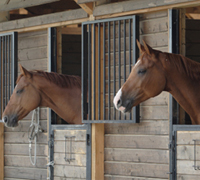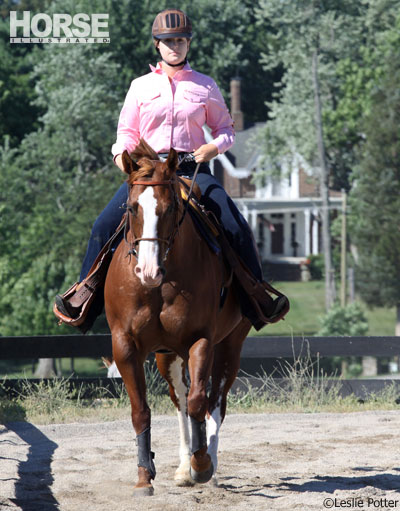
Several horses that attended the National Cutting Horse Association (NCHA) Western National Championships in Ogden, Utah from April 29-May 8 have been diagnosed with Equine Herpesvirus (EHV-1). Cases have since been reported in several western states and Canadian provinces.
According to the American Association of Equine Practitioners (AAEP), EHV-1 can cause respiratory disease, neurologic disease and abortion in pregnant mares.
Symptoms of respiratory infection may include fever, coughing and nasal discharge. Fever is typically the first sign of infection and is sometimes the only symptom. It is often undetected by owners and caretakers. Commonly called Rhino, most horses are vaccinated against this strain.
Symptoms of neurologic disease from EHV-1 include lack of coordination in the hind limbs, recumbency (frequent or constant lying down) and partial loss of bladder control. These symptoms sometimes follow respiratory symptoms. The neurologic strain of the disease is of highest concern as it has the potential to be fatal and there is no reliable vaccine to protect against it.
Most horse owners do not need to worry at this time as risk of infection is low. However, if your horse or other horses at his barn attended the NCHA Western National Championships, you should take your horse’s temperature regularly and tell your vet if he has a fever. Your vet will be able to test for EHV-1 and can give you anti-viral drugs if your horse is infected. Take extra biosecurity measures if your barn is at risk.
While the disease is harmless to humans, it is highly contagious between horses. It spreads via nose-to-nose contact between horses or inhalation of droplets from an infected horse snorting or coughing. The virus can also be transmitted indirectly on stall walls or clothing. For this reason, it is important for anyone in an at-risk area to change or thoroughly clean their clothes–including riding gloves, helmets and boots—when visiting different barns.
As a precaution, several upcoming NCHA competitions in the at-risk area have been canceled. Additionally, Colorado State University has temporarily closed its veterinary teaching hospital to nonemergency cases.
The NCHA is keeping up-to-date information on its website.
Get more information on the AAEP’s fact sheet.
Read more from the USDA.




This is a very scary disease for horses. I feel sorry for all the owners, who will have to worry about their friends.
gees. i hope it gets under control and doesnt become a “high risk of infection” to cause the rest of us to be on high alert. if people would vaccinate their horses better things like this could be prevented. right? but then, it says that the neurological strain of this disease has no relieable vaccine against it. so would it have mattered if they would have given their horses a rhino vaccine? thats scary to think your horse can get sick just from going to a show, or even on a group ride. what are we to do? just stay home and ride in the back yard?
Great info!
I hope that this is contained very soon!